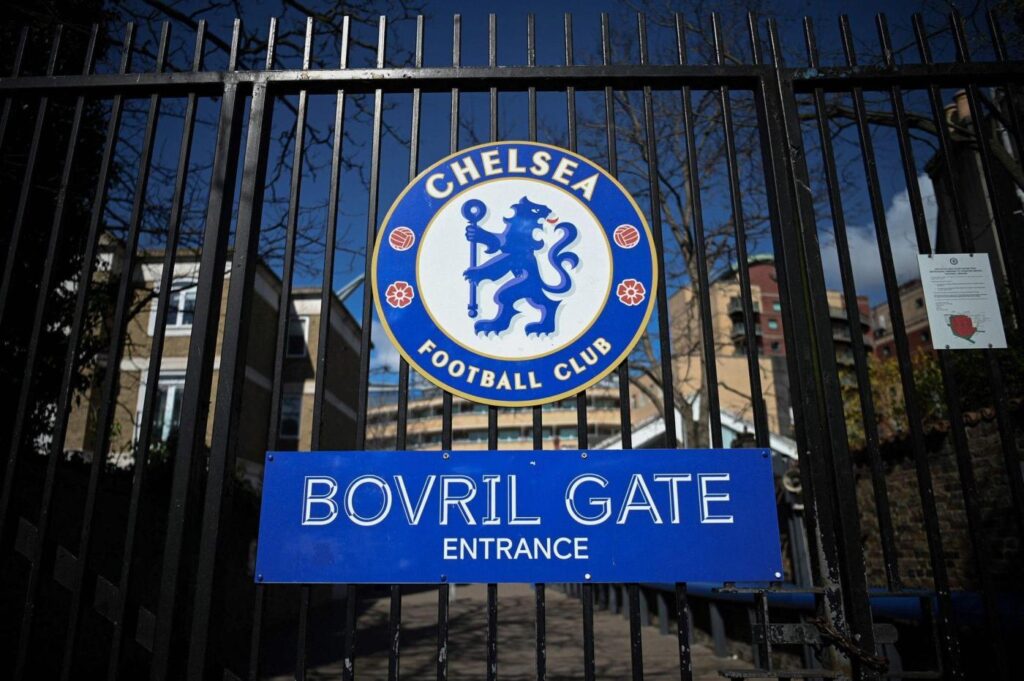
Despite being the face of their investment group, the Ricketts family, owners of the Chicago Cubs, will not have a controlling stake in Chelsea FC if their bid for the English soccer giant succeeds, a spokesman said Friday.
The spokesman, Dennis Culloton, would not identify the person who would own the leading share.
“That’s still shaping up and if they’re successful, I’m sure there will be more to be shared on that,” he said.
Culloton also said the family will not shortchange the Cubs if it lands Chelsea, a London-based Premiere League team with a massive payroll that has frequently operated at a loss. The family views the teams as separate enterprises, and despite the worries of some Cubs fans, financial decisions made for one won’t affect the other, he said.
“The Chicago Cubs are a closed loop,” he said. “All the revenue that is generated goes back into the team, in some fashion. So there’s no revenues from the Chicago Cubs being used for soccer or any other sports investment.”
The Ricketts family’s bid, in which they’ve been joined by Chicago hedge fund billionaire Ken Griffin and other wealthy investors, has been met with dismay by many Chelsea supporters. They started an online campaign pointing out Islamophobic remarks made in leaked emails by patriarch Joe Ricketts and the family’s ties to former President Donald Trump.
Tom Ricketts, who has denounced his father’s comments, has met with Chelsea supporters in an attempt to win their support. Some stories out of England suggest the family, which has made it to a shortlist of four bidders, is the preferred option of the New York-based bank running the sale.
The reaction to the Ricketts family’s pursuit of Chelsea has also been met with suspicion closer to home. Some Cubs fans, after watching the team slash its payroll and trade away superstars Kris Bryant, Anthony Rizzo and Javier Baez last year, fear the club will come second if the family’s investment group takes over Chelsea.
“The Rickettses will definitely lose focus on the Cubs because they will want to play with their shiny new toy,” said season ticket holder Al Maag, 72. “(The Cubs) need talent — star talent. It won’t be accomplished spending time or resources overseas.”
Similar concerns arose 12 years ago when John Henry, owner of the Boston Red Sox, bought Liverpool, a storied English soccer club. Boston Globe sports columnist Dan Shaughnessy wrote about Sox fans’ concern that Henry might cheap out on their beloved team.
“The Sox have a PR problem when they fail to keep (star catcher) Victor Martinez a month after John Henry opens the vault to buy the Liverpool soccer team,” he wrote. “Ownership can’t afford to have Red Sox Nation worrying that Henry is more concerned with Manchester United than the Yankees.”
As it turned out, both teams thrived after the purchase. The Red Sox have won four division titles and two World Series championships, all while keeping one of the highest payrolls in the game. Liverpool, meanwhile, won its first Premier League title since 1990 and three years ago lifted the Champions League trophy, the highest honor in European club soccer.
Matt Collins, managing editor of the Red Sox blog Over the Monster, said fans now have few problems with Henry’s pan-sports ownership, even as he has added the Pittsburgh Penguins to his stable and is reportedly on the hunt for an NBA team.
“Anytime people are mad about something the (Red Sox do), maybe not signing a certain player, there will be people saying, ‘Oh, they care more about the soccer team or the other teams they’re trying to buy,’ but I think it’s a minority,” he said. “I don’t think it’s really a big deal unless people are looking for something to complain about.”
But Chelsea promises to be a different situation. The club has spent extravagantly and frequently lost money over the 19 years in which Roman Abramovich, the Russian tycoon being forced to relinquish his ownership because of his alleged ties to Vladimir Putin, has been in charge.
It has also racked up five Premier League titles, five F.A. Cups and two Champions League trophies. Despite that record, Stefan Szymanski, a University of Michigan sport management professor and co-author of the book “Soccernomics,” said the club hasn’t built the deep worldwide following enjoyed by rivals such as Liverpool and Manchester United.
That means enduring success will likely depend on continued free spending, he said.
“They’ve been pretty consistent loss-makers for a very long time,” he said. “They just don’t have the infrastructure. To maintain this level of performance, you have to spend a lot of money.”
That’s why some worry the Cubs could come second in a Ricketts sports empire. Rich Johnson, who writes for the blog CubbiesCrib, recently wrote a post warning that the family could tighten the purse strings if Chelsea’s finances get messy.
“If Ricketts has a team that’s losing money hand over fist, I think that will at least make him gun shy about spending on the Cubs,” he said in an interview.
Culloton retorted that there are many examples of people who own successful teams in multiple sports, including Stan Kroenke, owner of Chelsea rival Arsenal, the Denver Nuggets, the Colorado Avalanche and the Super Bowl champion Los Angeles Rams.
Kroenke’s soccer commitments didn’t stop him from giving Rams defensive tackle Aaron Donald one of the richest contracts in the NFL, Culloton said, and the Ricketts family likewise plans to run their interests separately.
“(Cubs executive) Jed Hoyer … is not going to be transferred over to London to work on Chelsea,” he said. “There will be a soccer operation and a business operation at Chelsea that will be completely separate but will be under the leadership of the Ricketts family investment group.”
Twitter @JohnKeilman
()
